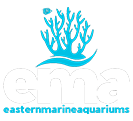Choosing the right salt mix for your reef aquarium can be a game-changer for the health and growth of your marine inhabitants. Two popular options among saltwater aquarium hobbyists are Red Sea Reef Salt and Red Sea Coral Pro Salt. Both salts boast impressive features tailored to different needs, but which one is the best fit for your tank? Let’s break down the differences and benefits to help you make an informed decision.
What is Red Sea Reef Salt?
Red Sea Reef Salt is designed to provide the exact parameters of tropical reef water, making it ideal for general maintenance of reef aquariums. Its stable parameters cater to a wide range of corals and marine fish, making it a great choice for both beginner aquarists and those with less demanding coral species.
Benefits of Red Sea Reef Salt:
- Ideal for General Maintenance: Suitable for various corals and marine fish.
- Stable Parameters: Great for beginners or those with less demanding corals.
- Healthy pH Levels: Helps maintain a healthy pH level, essential for marine life.
- Quick Dissolvability: New formula dissolves in just 20 minutes, making your mixing routine more convenient.
Purchase Red Sea Reef Salt here
What is Red Sea Coral Pro Salt?
Red Sea Coral Pro Salt is formulated for the growth and health of SPS (Small Polyp Stony) corals, enhancing their vibrant colors and promoting rapid growth. It provides elevated levels of calcium, magnesium, and alkalinity, essential for the development of coral skeletons and overall coral health.
Benefits of Red Sea Coral Pro Salt:
- Tailored for SPS Corals: Enhances vibrant colors and promotes rapid growth.
- Elevated Levels of Essential Elements: Provides calcium, magnesium, and alkalinity for optimal coral health.
- Supports Demanding Setups: Ensures optimal conditions for more demanding reef aquariums.
- Quick Dissolvability: New formula dissolves in just 20 minutes, easing the preparation process.
Purchase Red Sea Coral Pro Salt here
Key Differences Between Red Sea Reef Salt and Red Sea Coral Pro Salt
- Alkalinity Levels:
- Red Sea Reef Salt has a slightly lower alkalinity, ideal for aquariums running at 7-8 dkh.
- Red Sea Coral Pro Salt has elevated alkalinity, suitable for aquariums running at 11-12 dkh.
- Calcium and Magnesium Content:
- Red Sea Reef Salt offers balanced calcium and magnesium levels, perfect for maintaining a stable environment in a variety of reef systems.
- Red Sea Coral Pro Salt provides elevated levels of these elements, crucial for the growth of SPS corals.
- Target Users:
- Red Sea Reef Salt is ideal for users maintaining lower alkalinity levels compared to what Red Sea Coral Pro provides.
- Red Sea Coral Pro Salt is tailored for advanced hobbyists focusing on SPS corals and more demanding reef setups.
How to Choose the Right Salt for Your Aquarium
When deciding between Red Sea Reef Salt and Red Sea Coral Pro Salt, consider the specific needs of your reef aquarium:
- For General Maintenance: If you have a mixed reef with various corals and marine fish, Red Sea Reef Salt is a reliable choice. It offers stable parameters and is ideal for maintaining a healthy environment.
- For SPS Dominant Tanks: If you’re focusing on the growth and health of SPS corals, Red Sea Coral Pro Salt is the way to go. Its elevated levels of calcium, magnesium, and alkalinity create the perfect conditions for vibrant and thriving corals.
Conclusion
Both Red Sea Reef Salt and Red Sea Coral Pro Salt offer unique benefits tailored to different aquarium setups. By understanding the specific needs of your reef tank, you can choose the right salt mix to ensure a healthy and thriving marine environment.
At EasternMarine Aquariums, we’re committed to helping hobbyists create the reef of their dreams. With qualified ICP Advisors, New Zealand’s largest range of marine livestock, transparent supply chains, and major brands like Red Sea, Fauna Marin, Ecotech Marine, Bubble Magus, and Caribsea, we can elevate your reef aquarium experience.
Explore our range of products and get expert advice to make your reef aquarium flourish. Visit EasternMarine Aquariums today!












